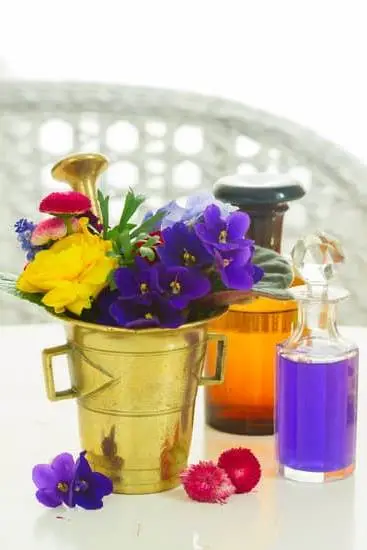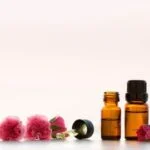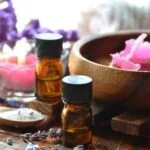How does aromatherapy affect an individual? Aromatherapy, an alternative medicine practice, uses essential oils and aromatic plant compounds to improve a person’s physical and psychological well-being. With its roots dating back thousands of years, aromatherapy has played a significant role in traditional healing practices across different cultures. In this article, we will delve into the science behind aromatherapy and explore its impact on individuals’ physical and mental health.
Aromatherapy involves the use of essential oils extracted from plants to promote health and well-being. The practice utilizes the sense of smell to stimulate the brain, affecting emotions and mood. Different scents can have various effects on an individual’s state of mind, making aromatherapy a versatile tool for improving overall wellness.
The study of how scents influence the brain leads us to understand the science behind aromatherapy. The olfactory system plays a vital role in this practice, as it is responsible for processing sensory information related to smells.
Additionally, the different properties of essential oils can impact mood and emotions, making them a valuable resource in addressing mental health concerns such as anxiety, stress, and depression. Furthermore, aromatherapy is not just limited to mental well-being; it also has physical benefits that can aid in alleviating various ailments and promoting relaxation.
Understanding the Science Behind Aromatherapy
Aromatherapy is a holistic healing treatment that uses natural plant extracts, also known as essential oils, to promote physical and emotional well-being. The use of aromatherapy can be traced back to ancient civilizations such as the Egyptians, Greeks, and Romans who used aromatic plants for medicinal purposes, spiritual rituals, and personal care. Today, aromatherapy is widely recognized for its therapeutic benefits and is commonly used in spa settings, healthcare facilities, and wellness practices around the world.
The science behind aromatherapy lies in the powerful connection between scents and the brain. When inhaled, the molecules from essential oils travel through the olfactory system to the limbic system – the part of the brain that regulates emotions, memories, and behaviors. This direct pathway allows essential oils to have a direct impact on mood and emotions. Different essential oils contain unique chemical compositions that evoke specific responses in the brain, making aromatherapy a personalized experience for each individual.
The olfactory system plays a crucial role in how aromatherapy affects an individual. This sensory system is responsible for processing smell and triggering various physiological responses in the body. When essential oils are inhaled or applied topically, they can stimulate the olfactory receptors which then send signals to other parts of the brain affecting heart rate, stress levels, blood pressure, breathing patterns, and overall well-being.
Understanding how different essential oils can impact mood and emotions is key to harnessing their therapeutic benefits for personal use. Below are some ways scents affect an individual:
- Lavender: Known for its calming properties. Lavender can help reduce anxiety and improve sleep quality
- Peppermint: Has invigorating effects that can boost energy levels and alleviate headaches
- Citrus Oils (Orange/ Lemon): Uplifting scents that can improve mood and promote relaxation
With a deeper appreciation for how scents affect our physiology through the olfactory system, individuals can make informed choices when using aromatherapy to support their health and well-being goals.
The Physical Effects of Aromatherapy
Aromatherapy is more than just a pleasant scent; it has real physical effects on the body. The use of essential oils in aromatherapy can help with various physical ailments. For example, peppermint oil and lavender oil have been found to relieve headaches and migraines when applied topically.
Inhaling eucalyptus oil can provide relief for respiratory issues such as congestion and coughs. These essential oils are known for their anti-inflammatory, analgesic, and decongestant properties, making them popular choices for addressing physical discomfort.
Furthermore, essential oils are believed to have beneficial effects on the body’s overall health. Studies have shown that certain oils like tea tree and oregano have antimicrobial properties that can help fight off infections. Others like chamomile and rosemary have antioxidant properties that may protect cells from damage caused by free radicals. Additionally, researchers have also found evidence suggesting that some essential oils can support the immune system and promote faster healing of wounds.
Overall, there is substantial evidence to suggest that aromatherapy has tangible physical benefits for individuals when used properly. It is important to consider personal sensitivities or allergies before using essential oils topically or internally, but when utilized safely, aromatherapy can be a valuable addition to one’s wellness routine.
| Physical Benefits of Aromatherapy | Evidence |
|---|---|
| Relief from headaches and migraines | Studies have shown the effectiveness of peppermint and lavender oil in relieving headaches. |
| Respiratory relief | Eucalyptus oil has been found to provide relief for congestion and coughs. |
| Antimicrobial benefits | Tea tree and oregano oil possess antimicrobial properties. |
Aromatherapy and Mental Health
Aromatherapy has been found to have a significant impact on mental health, particularly in the management of anxiety and stress. The use of essential oils such as lavender, chamomile, and frankincense has been shown to have calming effects on the mind and body. These scents can help reduce feelings of anxiety and promote relaxation. Research has indicated that aromatherapy can also be effective in treating depression, with certain essential oils having uplifting and mood-boosting properties.
Personal stories and testimonials from individuals who have incorporated aromatherapy into their mental wellness routine further demonstrate the benefits of this practice. Many have reported feeling a sense of calmness and relief from stress after using essential oils such as bergamot or rose. The act of engaging with different scents and being mindful of the experience can also contribute to a greater sense of relaxation and overall wellbeing.
Incorporating aromatherapy into daily life can be as simple as diffusing essential oils at home or work, using them in bath or massage products, or creating your own personal inhaler for on-the-go use. Whether used independently or as part of a broader wellness regimen, aromatherapy has demonstrated its potential to positively influence mental health and enhance emotional wellbeing.
| Aromatherapy Tip | Effectiveness |
|---|---|
| Diffusing lavender oil before bedtime | Calming effect on the mind, promoting better sleep quality |
| Mixing ylang ylang with carrier oil for massage | Uplifting mood booster reducing symptoms of depression |
Methods of Aromatherapy
Aromatherapy offers a variety of methods for individuals to experience the benefits of essential oils. Whether it’s through inhalation, topical application, or diffusion, incorporating aromatherapy into daily life can have significant effects on a person’s overall wellbeing. Here are some popular methods of aromatherapy:
- Inhalation: Inhaling essential oils is one of the most common methods of aromatherapy. The scent molecules travel to the olfactory bulb in the brain, which is responsible for processing smell. This creates a direct pathway to the limbic system, where emotions and memories are processed, explaining how different scents can impact mood and emotions.
- Topical Application: Applying diluted essential oils directly to the skin allows for absorption into the bloodstream, providing physical benefits such as pain relief and skin improvements. It’s important to dilute essential oils with carrier oils before applying them to the skin to prevent irritation.
- Diffusion: Using a diffuser is a popular way to enjoy the aromatic benefits of essential oils in an enclosed space. Diffused essential oils can promote relaxation and improve air quality in the environment.
Incorporating aromatherapy into daily life doesn’t have to be complicated. With these methods, individuals can easily experience the therapeutic effects of essential oils.
Tips for incorporating aromatherapy into daily life:
- Create a relaxing atmosphere at home by diffusing lavender or chamomile essential oil.
- Add a few drops of peppermint or eucalyptus oil to a hot bath for a rejuvenating and soothing experience.
- Carry a rollerball blend of calming essential oils like bergamot or frankincense for on-the-go stress relief.
By understanding these different methods and simple ways to integrate aromatherapy into daily routines, individuals can take advantage of its various benefits for their physical and mental wellbeing.
Aromatherapy and Sleep
A good night’s sleep is essential for overall health and wellbeing. Aromatherapy can be a natural and effective way to promote relaxation and improve sleep quality. By using certain essential oils, individuals can create a calming environment that promotes better sleep.
The Calming Effects of Aromatherapy on Sleep
Certain essential oils have been shown to have sedative effects, promoting relaxation and calmness. Scents such as lavender, chamomile, and sandalwood are known for their ability to induce feelings of tranquility, making them ideal for creating a peaceful atmosphere conducive to sleep.
Best Essential Oils for Improving Sleep Quality
In addition to lavender, other essential oils like bergamot, ylang-ylang, and valerian root have been found to help improve sleep quality. These oils can be used individually or in blends to create a personalized aromatic experience that suits an individual’s preferences and needs.
How to Use Aromatherapy for a Good Night’s Sleep
There are several methods for incorporating aromatherapy into one’s bedtime routine. Diffusing essential oils in the bedroom, adding a few drops of oil to a pre-bedtime bath, or applying diluted oil topically before bed are all effective ways to harness the benefits of aromatherapy for improved sleep.
Aromatherapy and Personal Wellbeing
Aromatherapy has been known to have a positive impact on an individual’s overall wellbeing. The use of essential oils in aromatherapy can help improve one’s physical, emotional, and mental state. The calming and uplifting effects of certain scents can create a sense of balance and relaxation, leading to an improved sense of personal wellbeing.
Many individuals find that incorporating aromatherapy into their daily routine can be a form of self-care. By diffusing essential oils or using them in massage or skincare products, individuals are able to create a soothing environment that promotes mindfulness and relaxation. This connection between aromatherapy and personal wellbeing is rooted in the ability of scents to evoke positive emotions and reduce stress levels.
In addition to promoting relaxation, aromatherapy is also believed to have mood-boosting effects, making it a powerful tool for enhancing one’s overall wellbeing. The use of specific essential oils has been linked to improving mood, increasing feelings of contentment, and reducing symptoms of anxiety and depression.
Many individuals have reported feeling more at ease and balanced after incorporating aromatherapy into their daily rituals. This further highlights how does aromatherapy affect an individual in a positive way by supporting their personal wellbeing.
The Safety of Aromatherapy
Aromatherapy has been used for centuries as a natural way to improve both physical and mental wellbeing. This holistic approach to healing involves the use of essential oils extracted from plants to promote relaxation, reduce stress, and alleviate various physical ailments.
The safety of aromatherapy is an important consideration when using essential oils, as they are highly concentrated and potent substances. It is crucial to understand how to safely incorporate aromatherapy into your daily routine to reap its benefits without risking any adverse effects.
When using essential oils for aromatherapy, it is essential to dilute them properly before applying them to the skin or inhaling them. Direct application of undiluted essential oils can cause skin irritation or allergic reactions in some individuals.
Additionally, it is crucial to do a patch test before using a new essential oil topically, especially if you have sensitive skin. By diluting essential oils with a carrier oil such as coconut oil or almond oil, you can minimize the risk of adverse reactions and ensure the safe use of aromatherapy.
Another important aspect of ensuring the safety of aromatherapy is being aware of any potential contraindications or interactions with medications. Some essential oils may interfere with certain medications or exacerbate existing health conditions.
Consulting with a healthcare professional before incorporating aromatherapy into your wellness routine can help identify any potential risks and ensure that it is safe for you. Understanding the proper dosages and methods of application for different essential oils is also crucial in maintaining the safety and effectiveness of aromatherapy.
Conclusion
In conclusion, aromatherapy has been shown to have a profound impact on individuals in various aspects of their lives. From the physical effects of essential oils on the body to the mental health benefits of aromatherapy in reducing anxiety and stress, the use of scents has proven to be a powerful tool for overall wellbeing.
The science behind aromatherapy sheds light on how different scents can affect the brain and emotions, leading to improved mood and relaxation. The calming effects of certain essential oils have also been found to promote better quality sleep, which is crucial for personal wellbeing. Additionally, the use of aromatherapy as a form of self-care and mindfulness has become increasingly popular, as individuals seek holistic approaches to wellness.
As more research continues to demonstrate the positive impact of aromatherapy, it is important for readers to consider incorporating these practices into their daily routines. Whether it’s through diffusing essential oils, topical application, or inhalation, exploring the benefits of aromatherapy can lead to significant improvements in one’s overall quality of life. The power of scent in promoting relaxation and holistic wellness should not be underestimated, and individuals are encouraged to explore the world of aromatherapy for themselves.
Frequently Asked Questions
What Effects Does Aromatherapy Have on Humans?
Aromatherapy has various effects on humans, including relaxation, stress relief, improved mood, and even potentially assisting in pain management. Different scents can stimulate different reactions in the brain and body.
How Does Aromatherapy Make You Feel?
Aromatherapy can make people feel relaxed, uplifted, or energized depending on the specific scent being used. For example, lavender may promote relaxation while peppermint may help to invigorate and refresh the senses.
How Does Aromatherapy Affect the Mind?
Aromatherapy affects the mind by triggering the olfactory system, which is linked to the brain’s emotional and memory centers. Different scents can have different effects on mood, focus, alertness, and overall mental well-being.

Are you looking for a natural way to improve your health and wellbeing?
If so, aromatherapy may be the answer for you.





